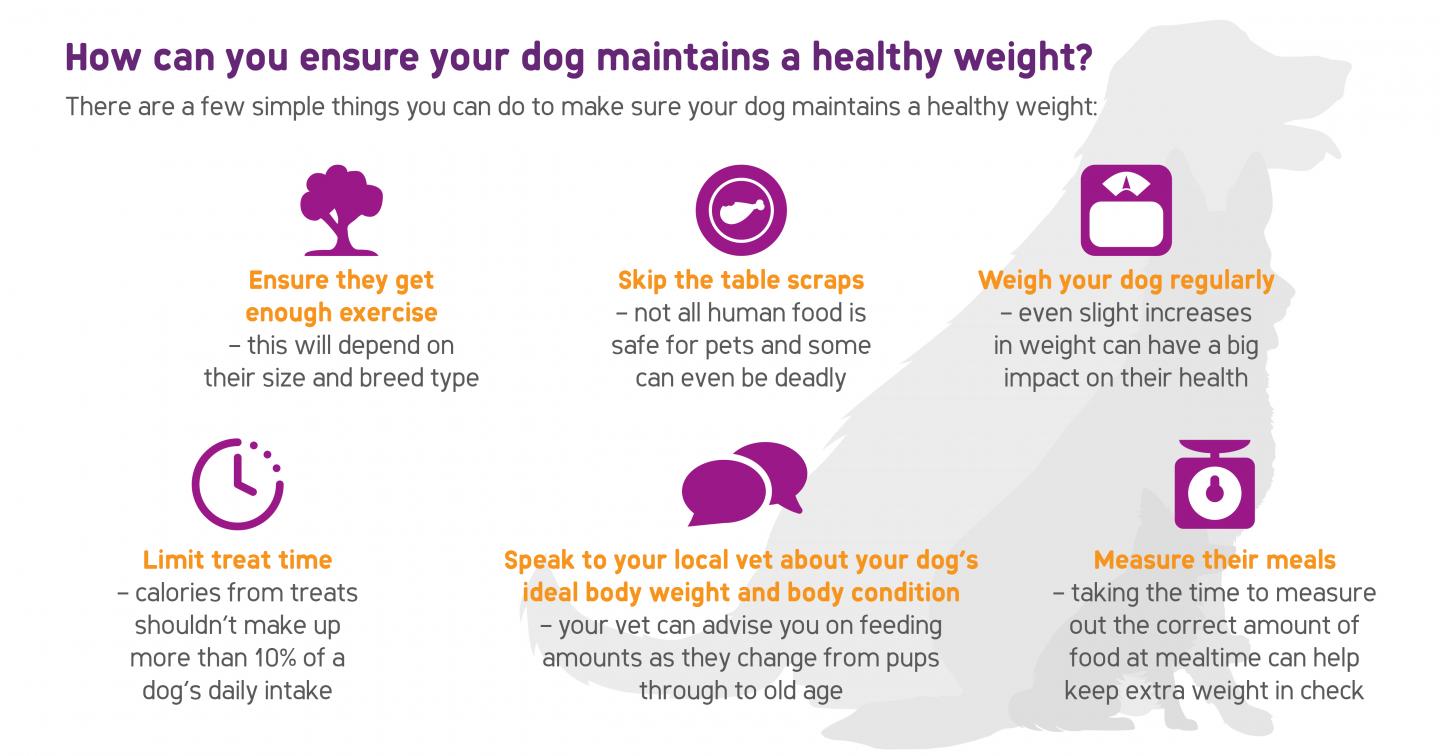
Credit: Mars Petcare’s WALTHAM Centre for Pet Nutrition
New research from the University of Liverpool and Mars Petcare’s WALTHAM Centre for Pet Nutrition reveals overweight dogs are more likely to have shorter lives than those at ideal body weights.
Results from the study, conducted retrospectively across two decades and published in the Journal of Veterinary Internal Medicine, revealed the lifespan of dogs that were overweight was up to two and a half years shorter when compared to ideal-weight dogs.
The study examined more than 50,000 dogs across 12 of the most popular dog breeds. The effect of being overweight was seen in all breeds, although the magnitude of the effect differed, ranging from between five months less for male German Shepherds to two years and six months less for male Yorkshire Terriers.
Poorer quality of life
It is estimated that over a quarter of households (26%) in the UK and nearly half in the US (47.6%) own a dog. However despite our affection for canine companions, concern is growing that many pet owners are unaware of the serious health implications of dogs carrying extra weight. Pet obesity is steadily on the rise, with latest figures estimating one in three dogs and cats in the U.S. is overweight.
Although the study did not examine the reasons behind the extra pounds in dogs, feeding habits are thought to play a role in pet obesity. According to a recent Better Cities For Pets survey, more than half (54%) of cat and dog owners always or often give their pet food if they beg for it, and nearly a quarter (22%) of cat and dog owners sometimes overfeed their pet to keep them happy.
Study co-author and Professor of Small Animal Medicine at the University of Liverpool Alex German, said: “Owners are often unaware that their dog is overweight, and many may not realise the impact that it can have on health. What they may not know is that, if their beloved pet is too heavy, they are more likely to suffer from other problems such as joint disease, breathing issues, and certain types of cancer, as well as having a poorer quality of life. These health and wellbeing issues can significantly impact how long they live.
“For many owners, giving food, particularly tasty table scraps and tidbits, is the way we show affection for our pets. Being careful about what you feed your dog could go a long way to keeping them in good shape and enabling them to be around for many years to come.
“Worryingly, it is estimated only one in five pet owners always measures how much food they are giving their pet, with four in five (87%) always or often simply estimating the amount of food they think their pet needs at each serving.”
About the Study
The University of Liverpool and WALTHAM study was a retrospective, observational cohort study that leveraged demographic, geographic and clinical data from dogs that received care at BANFIELD® Pet Hospitals between April 1994 and September 2015. Data were available from 50,787 dogs across 12 of the most popular family breeds: Dachshund, German Shepherd, Golden Retriever, Labrador Retriever, American Cocker Spaniel, Beagle, Boxer, Chihuahua, Pit Bull Terrier, Pomeranian, Shih Tzu, and Yorkshire Terrier. For each breed, the lifespan dogs whose owners reported them to be overweight and those in optimal body condition was compared.
As the largest general-veterinary practice in the world, Banfield has more than 1,000 hospitals across the United States and Puerto Rico comprised of veterinary teams who are committed to providing high-quality veterinary care for more than three million pets annually. The data extracted for this study included demographic (breed, sex, neuter status and date of birth) and geographic (latitude and longitude of the owner’s postcode) variables, plus data collected during in-clinic visits (date of visit, bodyweight and if available body condition), and date of death. Pedigree status and date of birth are both owner-reported parameters and were not verified by veterinary staff.
Healthy weight management
When it comes to healthy weight management prevention is better than a cure, and to prevent obesity, you need to spot it early. There are a few simple things you can do to make sure your dog maintains a healthy weight:
1) Speak to your local vet about your dog’s ideal body weight – they can advise you on feeding amounts as they change from pups through to old age
2) Ensure they get enough exercise – this will depend on their size and breed type
3) Skip the table scraps – not all human food is safe for pets and some can even be deadly
4) Weigh your dog – even slight increases in weight can have a big impact on their health
###
The full study, entitled ‘Association between life span and body condition in neutered client?owned dogs, can be found here https:/
Media Contact
Simon Wood
[email protected]
44-151-794-8356
Related Journal Article
http://dx.




